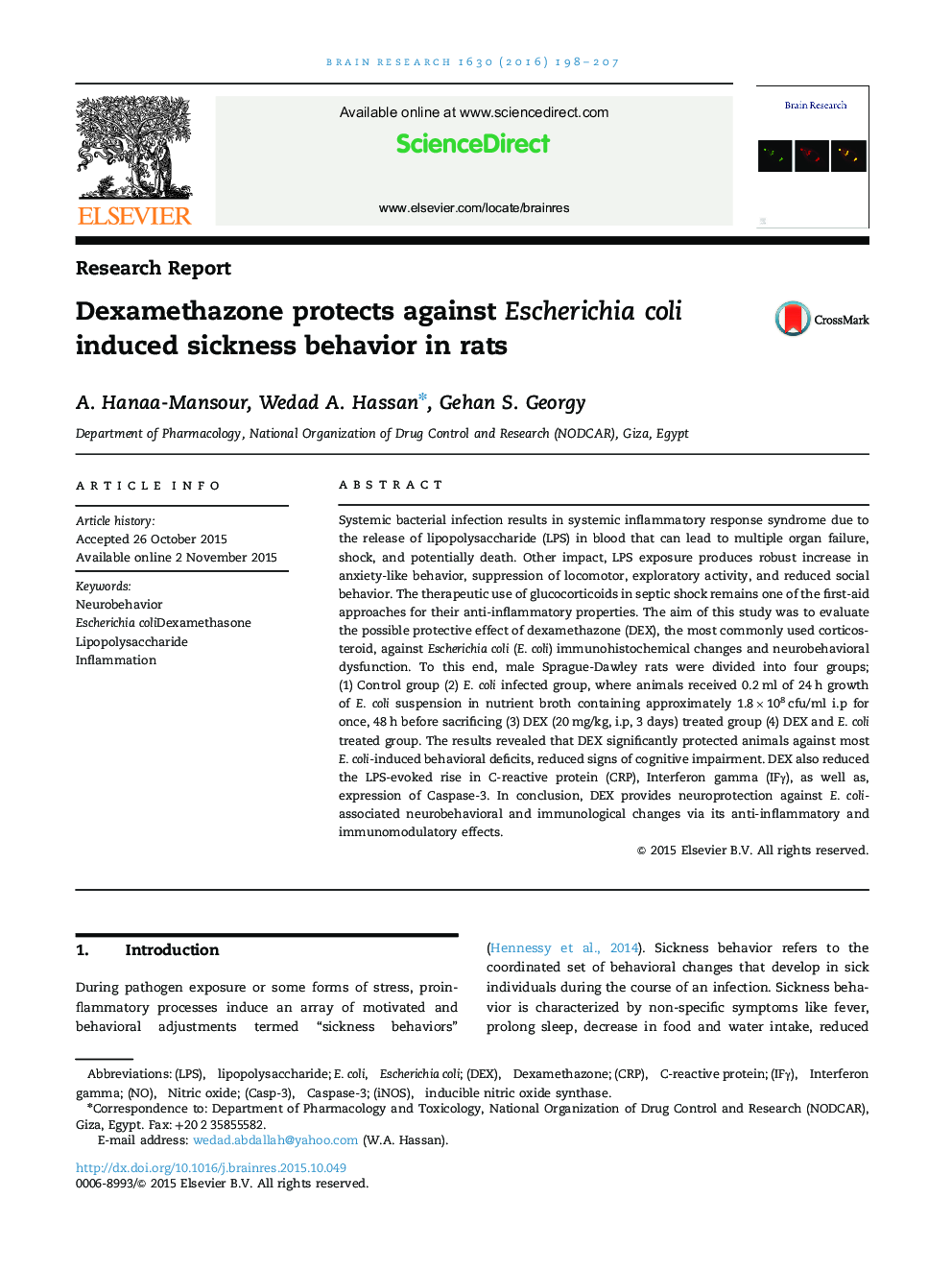| کد مقاله | کد نشریه | سال انتشار | مقاله انگلیسی | نسخه تمام متن |
|---|---|---|---|---|
| 6262641 | 1613810 | 2016 | 10 صفحه PDF | دانلود رایگان |
- E. coli caused immunohistochemical changes and neurobehavioral dysfunction.
- Dexamethazone provides neuroprotection against E. coli-associated sickness behavior.
- The inhibition of inflammatory response was achieved through the reduction of IFNγ level.
- The expression of caspase-3 was suppressed, suggesting the inhibition of apoptosis by DEX.
Systemic bacterial infection results in systemic inflammatory response syndrome due to the release of lipopolysaccharide (LPS) in blood that can lead to multiple organ failure, shock, and potentially death. Other impact, LPS exposure produces robust increase in anxiety-like behavior, suppression of locomotor, exploratory activity, and reduced social behavior. The therapeutic use of glucocorticoids in septic shock remains one of the first-aid approaches for their anti-inflammatory properties. The aim of this study was to evaluate the possible protective effect of dexamethazone (DEX), the most commonly used corticosteroid, against Escherichia coli (E. coli) immunohistochemical changes and neurobehavioral dysfunction. To this end, male Sprague-Dawley rats were divided into four groups; (1) Control group (2) E. coli infected group, where animals received 0.2 ml of 24 h growth of E. coli suspension in nutrient broth containing approximately 1.8Ã108 cfu/ml i.p for once, 48 h before sacrificing (3) DEX (20 mg/kg, i.p, 3 days) treated group (4) DEX and E. coli treated group. The results revealed that DEX significantly protected animals against most E. coli-induced behavioral deficits, reduced signs of cognitive impairment. DEX also reduced the LPS-evoked rise in C-reactive protein (CRP), Interferon gamma (IFγ), as well as, expression of Caspase-3. In conclusion, DEX provides neuroprotection against E. coli-associated neurobehavioral and immunological changes via its anti-inflammatory and immunomodulatory effects.
Journal: Brain Research - Volume 1630, 1 January 2016, Pages 198-207
